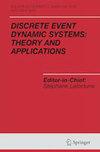《人无完人:自传与民主精神》
IF 1.6
4区 计算机科学
Q4 AUTOMATION & CONTROL SYSTEMS
Discrete Event Dynamic Systems-Theory and Applications
Pub Date : 2023-10-01
DOI:10.1353/tae.2023.a909215
引用次数: 0
摘要
《没有人是完美的:自传与民主精神》托马斯·l·达姆(自传)如果自传要达到哪怕是最低限度的可读性,自传作者就必须介入,抑制你可以称之为记忆的自闭症,抑制它对乏味的激情。他不应该害怕发明。最重要的是,他必须创造自己。就像卢梭一样,他(在他的小说《忏悔录》的开头)写道:“我不像我所认识的任何人,也许不像任何一个存在的人。”他必须坚持,尽管所有的证据都与之相反,他的超然非凡的幻想。-珍妮特·马尔科姆引言:写作与阅读通常,当一本知识分子的回忆录出现时——也许尤其是一本来自学术界的回忆录——它通常被作为一个人一生工作的完成,一种个人的最高荣誉,一种用来证明作者一生致力于创作大量作品的写作。从一个正在得出结论的人的角度来讲述,也许甚至从他们可能认为(希望不是傲慢地)已经获得某种智慧的角度来看,这本回忆录似乎是一种顶峰;鉴于这种类型,它与课程结束时提交的期末论文没有什么不同。也许一个人隐约感觉到死亡在敲门;也许一个人会觉得自己的智力已经达到顶峰,在衰退太大之前,他想从过去不可靠的记忆中获得一些连贯的自我理解。有时是一种模糊或具体的紧迫感,担心自我认知可能会减弱,有时是不完整的生活或被打断的生活,甚至是即将结束的生活,这些都推动着他们前进,在时间耗尽之前前进。这些标记的受众是谁?珍妮特·马尔科姆认为,在合理的范围内——对“记忆的自闭症,对乏味的激情”没有耐心——假定从别人的一生中学到一些二手知识的所有读者都是如此。学术知识分子回忆录作者通常为这样的任务做好了充分的准备。他们做了一辈子教书育人的工作,到最后还是个学究。经过一生的写作,他们有了一个可以依靠的档案,以及与同事、以前的学生和其他人的持续联系,这些可能会帮助他们拼凑过去的元素。我已经注意到,但有必要重复:进行这种练习的一个重要原因不仅是为了向他人解释自己,而且是为了向自己解释自己。这种对自我理解的追求不需要成为一种个人庆祝或自我祝贺的练习——事实上它不应该——但它可以是更好的东西;一种对个人所经历的特殊生活的偶然性的反思,以及这种偶然性与个人所参与的更普遍的精神生活的联系,无论这种联系是强是弱。在最好的情况下,它是诚实的——诚实的一个因素是回忆录作者有能力意识到他们自己不可避免的自我欺骗,虚构的元素,正如马尔科姆所说,将渗透到记忆和它的记录中。这些虚构是不可避免的,因为它们是一个人自我本质上不可知的结果。承认这种自我不可知——也就是说,一个人如何对自己和他人诚实地面对不可避免的虚构自我——不仅反映了作家存在的更深层次的现实,也反映了作家生活中更大的文化。朱迪思·巴特勒(Judith Butler)指出,这种文化嵌入对自我理解的问题有一种政治价值。她所关心的,我们可以称之为诚实的变迁,是政治上的,因为特定的文化总是会发生变化的。她观察到,当集体精神由于更大的文化转变和转型而受到质疑时,它可以抵制这些变化,拒绝退回到过去:“……暴力是它强加于当下的方式……本文章由计算机程序翻译,如有差异,请以英文原文为准。
Nobody’s Perfect: Autobiography and the Ethos of Democracy
Nobody’s Perfect: Autobiography and the Ethos of Democracy Thomas L. Dumm (bio) If an autobiography is to be even minimally readable, the autobiographer must step in and subdue what you could call memory’s autism, its passion for the tedious. He must not be afraid to invent. Above all he must invent himself. Like Rousseau, who wrote (at the beginning of his novelistic Confessions) that “I am not made like anyone I have ever been acquainted with, perhaps like no one in existence,” he must sustain, in spite of all evidence to the contrary, the illusion of his preternatural extraordinariness. —Janet Malcolm1 Introduction: Writing and Reading Often, when an intellectual memoir appears—perhaps especially one that has originated from within the academic world—it is presented to its public as a sort of completion of one’s life work, a personal summum bonum, a writing that serves somehow to justify the author’s devotion to creating a body of work over their lifetime. Told from the perspective of someone who is reaching toward a conclusion, perhaps even from a point where they may assume—hopefully not hubristically—to have achieved some sort of wisdom, the memoir appears as a sort of capstone; given the genre, it is not unlike a final paper handed in at the completion of a course. Maybe one vaguely senses mortality knocking; maybe one feels as though they have peaked in their intellectual powers, and before decline sets in too far wants to get some coherent self-understanding out of what the unreliable memory of the past presents to oneself of oneself. Sometimes a vague or specific urgency, a worry about the possibility of diminishing self-perception, sometimes an incomplete life or a life interrupted, or even a life drawing to an end, impels them forward, forward before time runs out. Who is the audience for such markings? Janet Malcolm assumes that it is any and all readers who, within the limits of reasonability—with no patience for “memory’s autism, its passion for the tedious”—presume to learn something second-hand from lessons learned by another over their lifetime. The academic intellectual memoirist usually [End Page 758] comes well equipped for such a task. After a lifetime of teaching, they remain a pedagogue to the end. And after a lifetime of writing, they have an archive they can lean on, as well as continued contact with colleagues, former students, and others that may help them as they piece together elements of the past. I have already made note, but it bears repeating: an important reason for undertaking such an exercise is not only to explain oneself to others, but to explain oneself to oneself. This quest for self-understanding need not be an exercise in individual celebration or self-congratulation—in fact it should not be—but it can be something better; a reflection on the contingencies of the particular life one has lived and its connections, both strong and attenuated, to the more general life of the mind one has participated in. At its best it is honest—and an element of that honesty is the memoirist’s capacity to work with the realization of their own inevitable self-deceptions, the fictional elements, as Malcolm suggests, that will infiltrate remembrance and its recording. These fictions are inevitable because they are a result of the essential unknowability of one’s self. An acknowledgment of this self-unknowability—that is, how one goes about being honest to oneself and others about one’s inevitably fictive self—reflects not only a deeper reality of the writer’s being, but of the larger culture within the writer lives. Judith Butler notes that there a political valence to the problem of self-understanding that comes from this cultural embeddedness. Her concern regarding what we might call the vicissitudes of honesty in giving an account of oneself is political because specific cultures are always subject to change. She observes that a collective ethos, when it comes into question as a result of larger cultural shifts and transformations, can resist those changes, refusing to recede into the past: “. . . and violence is the way it imposes itself upon the present...
求助全文
通过发布文献求助,成功后即可免费获取论文全文。
去求助
来源期刊
CiteScore
3.90
自引率
5.00%
发文量
13
审稿时长
>12 weeks
期刊介绍:
The research on discrete event dynamic systems (DEDSs) is multi-disciplinary in nature and its development has been dynamic. Examples of DEDSs include manufacturing plants, communication networks, computer systems, management information databases, logistics systems, command-control-communication systems, robotics, and other man-made operational systems. The state processes of such systems cannot be described by differential equations in general. The aim of this journal, Discrete Event Dynamic Systems: Theory and Applications, is to publish high-quality, peer-reviewed papers on the modeling and control of, and all other aspects related to, DEDSs. In particular, the journal publishes papers dealing with general theories and methodologies of DEDSs and their applications to any particular subject, including hybrid systems, as well as papers discussing practical problems from which some generally applicable DEDS theories or methodologies can be formulated; The scope of this journal is defined by its emphasis on discrete events and the dynamic nature of the systems and on their modeling, control and optimization.

 求助内容:
求助内容: 应助结果提醒方式:
应助结果提醒方式:


